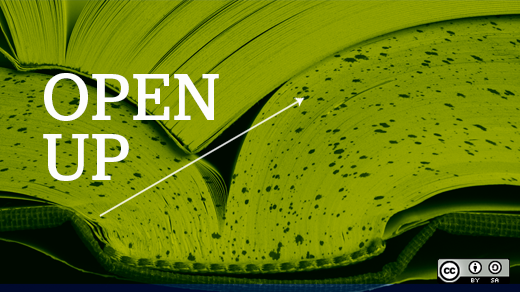Last week, Winston Hide committed what he called "a toxic career move." Hide, an associate professor of bioinformatics and computational biology at the Harvard School of Public Health, publicly resigned from the editorial board of Genomics, an influential journal in his field.
"No longer can I work for a system that provides solid profits for the publisher while effectively denying colleagues in developing countries access to research findings," he wrote in a piece for the Guardian. "I cannot stand by any longer while access to scientific resources is restricted."
Hide's denunciation of Geonomics' publisher, Elsevier, joins a growing chorus of discontent with academic presses' restrictive access policies, which professors like Hide claim prevent important research from having the impact it could. Hide, for instance, notes that colleagues in South Africa can't access critical biomedical journals because their libraries simply cannot afford subscriptions to them. And individual subscriptions to journals and academic databases are expensive, too—so expensive that authors will often resort to swapping copyrighted material among networks of trusted colleagues instead of purchasing their own copies from publishers' websites.
Academic publishing is complicated: Professors submit articles to academic journals in the hope that those journals will publish their work. Journals are typically managed by editorial boards, who ship submissions they receive to experts capable of anonymously evaluating the rigor and merit of these articles. Those experts—peers of the scholars who have submitted work for publication (hence the popular name for this process: "peer review")—do the work of reading, assessing, and responding to these manuscripts (work, called "refereeing," that is unpaid). Reviewers judge a manuscript's suitability for publication, and editors use these reviews to decide whether a they should publish a particular piece.
Editors collect manuscripts that pass the peer-review process into journal issues. These issues get sent to publishers, who copy edit, print, bind, and ship journals to research institutions and individual subscribers. Subscribers pay annual fees for the content. Publishers also make this content available online, often for a fee. But in exchange for doing so, publishers frequently ask authors to relinquish the copyrights those authors hold on their manuscripts. Many scholars—especially young academics just beginning their careers—do this, because they rely on peer-reviewed publications for achieving promotion and tenure at universities. They can't risk not complying with a publisher's terms.
So a good deal of newly-published, cutting-edge research is available only to those capable of paying for access to it. But criticism of the traditional publishing system has been growing, as has the intensity of demands for open access to scholarly materials.
Earlier this year, Peter Suber (currently Director of the Harvard Open Access Project and Open Access Director at Public Knowledge) made waves similar to Hide's when he announced he would no longer referee articles for journals associated with the Association of American Publishers (AAP). At the time, the AAP supported the newly-introduced Research Works Act, a bill that sought to prohibit federal agencies from mandating open access policies—like the National Institute of Health's Public Access Policy, which ensures research funded by the NIH (and thus taxpayer dollars) is freely available to anyone who wants it. Both Suber and Hide have pledged to channel their academic energies into open-access projects.
In February, support for the Research Works Act foundered; however, open access to publicly-funded research is still the exception, not the rule. This week, a petition to "require free access over the Internet to scientific journal articles arising from taxpayer-funded research" appeared on whitehouse.gov (the Guardian has coverage of that, too). The petition calls for universalizing policies like the NIH's, and signing it allows citizens—even those who can't resign in protest from editorial boards—to show their support of open access to research.







4 Comments